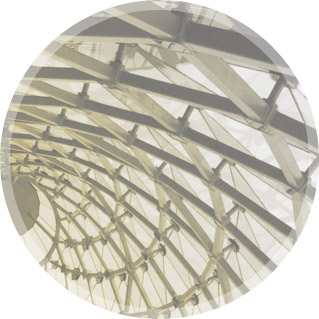University of North Carolina at Charlotte
School of Architecture
The School of Architecture (SoA) is devoted to engaging students in an energetic study of how architecture and design affect - and stimulate - our daily lives. The School of Architecture is recognized for the outstanding quality of our faculty and students, our commitment to outreach and community involvement, and the quality and extent of resources offered through our labs, studios, and classrooms – both at UNC Charlotte's main campus, and the Center City Building in Uptown Charlotte.

Setting
The School of Architecture (SoA) is a partner in the College of Arts + Architecture at UNC Charlotte, one of the fastest-developing of the 16 constituent institutions of the University of North Carolina system. The College of Arts + Architecture includes the School of Architecture and the departments of Art & Art History, Theatre, Dance, and Music. The School's alliance with these arts units provides a diversity of multidisciplinary educational, research, and experimental opportunities for both faculty and students. Charlotte is a fast-growing urban area with a lively urban culture that includes center-city housing, business, retail, major public facilities, and expanding mass transportation options--including light rail that connects the university to the city. The region has a strong architectural community committed to the School and its students. In turn, the School has a reputation for its consistent and vital involvement in the community.
School Philosophy
The mission of the School of Architecture (SoA) is to provide intellectual, ethical, and innovative leadership in architecture and urban design through excellence in teaching, scholarly research, creative architectural practice, and community activism. Faculty and students at the School of Architecture are committed to creating an open-minded and creative atmosphere to pursue research, explore new forms of building, and discover collaborative practices that nurture human potential. Our graduates understand where knowledge comes from and how to integrate their voice with others to influence the art and science of architecture. The School of Architecture opens opportunities to students through interdisciplinary programs, close alliances with the profession, and active programs in the community. The creation of architecture is inherently complex, requiring design vision and competence; effective visual communication and literacy; cultural, historical and theoretical perspective; technological knowledge; environmental responsibility; sophisticated problem solving skills; and creative leadership. Architects must possess knowledge of science and liberal arts, ethics, critical thinking, and research methods. Architects understand the value of building an intellectual foundation that embraces the widest possible range of knowledge and ideas.
We prepare our students to serve society as active and knowledgeable practitioners. Success in the SoA requires PASSION and GRIT. Our programs are time-intensive and intellectually demanding. A strong architectural education demands the development of a well-rounded, well-informed individual who meets the challenge of integrating a strong liberal arts education with a rigorous professional education. Students must master five areas of competence to effectively realize their intellectual, architectural and leadership potential: Critical thinking: the ability to construct relationships between areas of knowledge drawn from theory and diverse cultures; Design: innovative and reflective concepts coupled with synthesis, development, and refinement of architectural form, space and materiality; Building: expertise at developing, integrating, and implementing architectural technologies both conceptually and in practice; Visual literacy: representational skill to communicate design intent and execution through a wide range of media, both analogue and digital; Professionalism: development of innovative and ethical business practices as well as active leadership in the profession and the larger community. Students are admitted who we believe will thrive in the dynamic, diverse, intense and exploratory environment created in the School. Our goal is to equip students to succeed in a multitude of career paths connected to the built environment. A student-to-faculty ratio of 14:1 creates an intimate and respectful atmosphere in which students can learn and mature. Each student is recognized and treated as an individual with specific talents and interests. All students in the SoA receive professional advising each semester.

Programs
The School provides undergraduate and graduate degree programs, interdisciplinary and dual-degree graduate programs, and international education options. We offer pre-professional and professional undergraduate programs: the Bachelor of Arts in Architecture & the Bachelor of Architecture.
Bachelor of Arts in Architecture and the Bachelor of Architecture
The Bachelor of Arts in Architecture (B.A. in Arch.) is the pre-professional, four-year undergraduate degree program in architecture. In the first three years, students are enrolled in general education and core architecture courses, including architectural design studio in the first year. In design studios and seminars, which occur each semester, students acquire the fundamentals of visual and spatial design, problem solving, conceptualization, technology, and environmental influences. In the fourth year, students select design studios and seminars related to topical interests such as energy and sustainability, digital design methods, urban design, and conceptual themes. In addition, students extend their knowledge of architectural history and technology while having the opportunity to pursue individual interests through architectural elective seminars. The B.A. in Arch. is awarded at the end of the fourth year.
Students seeking to supplement their architecture education may desire to add an undergraduate minor. Students who enter the University with advanced standing are likely to have time in their schedule for a minor in such areas as Architectural History/Theory/Criticism, Business, Dance, Film Studies, Foreign Languages, Urban Studies, and more.
In the fall semester of the fourth year, students may elect to pursue one of two professional degrees in architecture: 1) Bachelor of Architecture (B.Arch.); or 2) Master of Architecture (M.Arch.). The School also offers post-professional degree programs at the graduate level through the Master of Science in Architecture and the Master of Urban Design.
Master of Architecture Programs
The M.Arch. I program is a three-year curriculum designed for incoming students who have earned their undergraduate degree in a discipline other than architecture. The M.Arch. II program is a two year curriculum designed for incoming students with an undergraduate architecture degree from an NAAB-accredited institution. Students from UNC Charlotte's School of Architecture may enter the graduate program with Advanced Standing and pursue a unique curriculum (summer/fall/spring) resulting tin the M.Arch. All M.Arch. programs are NAAB accredited.
The M.Arch. I Program is structured around four primary components: a first year which establishes fundamental design skills, architectural history and theory, and building systems; a second year focused on building technology, comprehensive building design, and urban issues; a summer study experience; and a third year dedicated to design and research investigations.
In the first year of the MArch II program, students complete a curriculum consisting of a comprehensive architectural design project, and an advanced-design studio coupled with courses in contemporary theory, building technology, computational methods, design methodology, and architectural electives. In the second year, students complete a research-driven graduate design studio along with courses in professional practice, and additional architectural electives.
The Master of Urban Design (MUD) in the School of Architecture at UNC Charlotte is the first urban design program established in the Carolinas to meet the growing demand for expertise in urbanism both locally and globally. This post-professional graduate program explores innovative design, applied research, and transformative policies and implementation strategies in building cities and neighborhoods in order to foster environmental and social sustainability. The program’s inclusive admissions policy attracts a diverse group of students interested in pursuing careers in design and planning practice, governmental agency, and non-profit organization. The program also welcomes professionals who seek opportunities for mid-career enhancement.
The newly launched Masters of Science in Architecture focuses on emerging fields of research critical to the architectural profession that require areas of expertise that go beyond current criteria for accredited professional degrees. The goal of the MS in Architecture is to generate research at a regional and national level by combining advanced architectural graduate studies with the ongoing research interests of faculty. The Master of Science in Architecture degree is most appropriate for students interested in pursuing a defined research agenda. Unlike the M. Arch., it is not a professionally-accredited degree. The School of Architecture’s MS in Architecture will focus upon concentrations in Design Computation and Performance and Diagnostics will provide the program with unique opportunities for research.
The School also offers dual degrees with Computer Science through the DesComp program. The premise of the Design Computation Dual Degree Program is that design has become increasingly important to computer scientists and at the same time computation has become important to designers. This program is a unique curriculum that systematically combines the strength and insights of each discipline. The curriculum integrates Computer Science/SIS and Architecture students and faculty working collaboratively on tasks that challenge both fields.

of Focus
1. Digital Fabrication & Technology
2. Building Technologies
3. Community Design
4. History | Theory | Criticism
5. Urbanism
6. Design/Build
7. Sustainability & High-Performance Built Environments

Opportunities

Facilities

Policies
Transfer Policies
Admission to the School of Architecture is competitive and requires two separate admission processes: 1) Admission to the University of North Carolina at Charlotte and 2) Admission to the School of Architecture (SoA). When applying to the university, please designate “Architecture” as your intended major and submit all required materials (such as test scores, application fees and transcripts) by appropriate deadlines. (applies to both incoming freshman and transfers).


